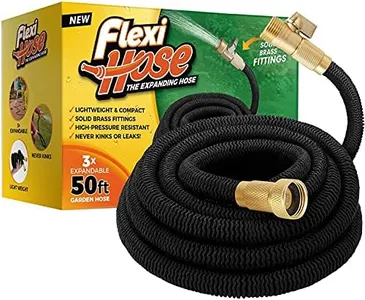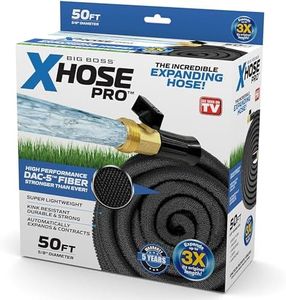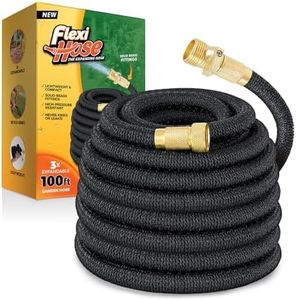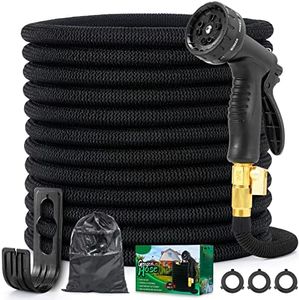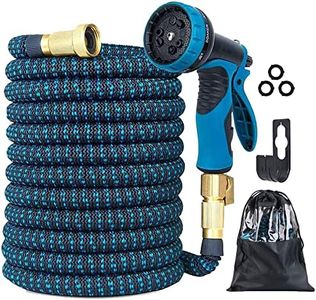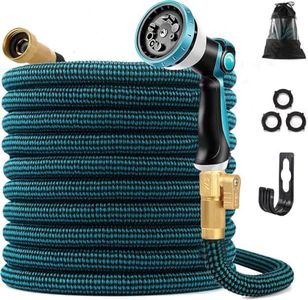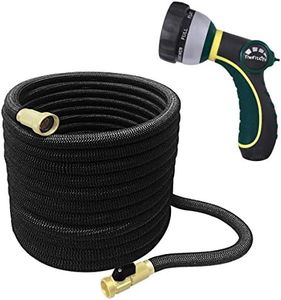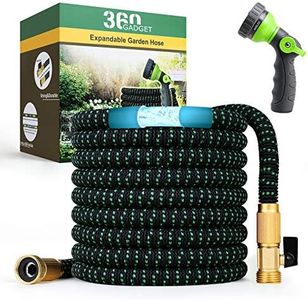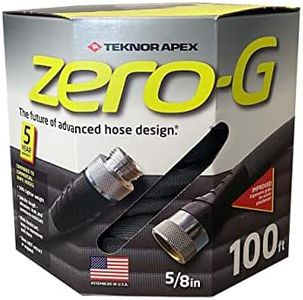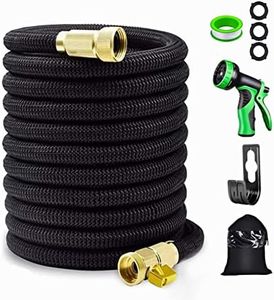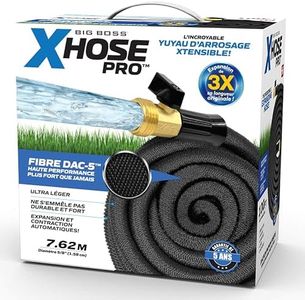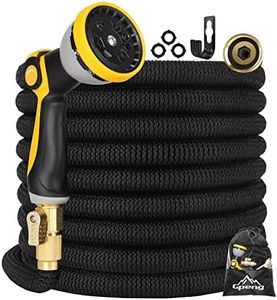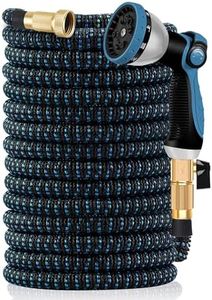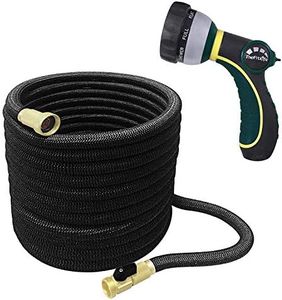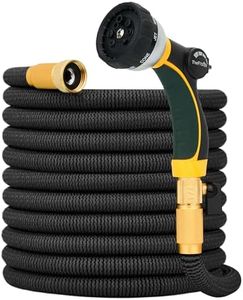We Use CookiesWe use cookies to enhance the security, performance,
functionality and for analytical and promotional activities. By continuing to browse this site you
are agreeing to our privacy policy
10 Best Expandable Garden Hoses
From leading brands and best sellers available on the web.Buying Guide for the Best Expandable Garden Hoses
Choosing the right expandable garden hose can make watering your garden, washing your car, or cleaning your patio much easier and more enjoyable. Expandable hoses are popular because they are lightweight, easy to store, and expand to a much longer length when filled with water. However, not all hoses are created equal, and picking the right one depends on understanding a few key features. By focusing on the main specifications, you can find a hose that fits your needs and lasts a long time.Length (Expanded and Contracted)The length of an expandable hose is measured both when it is filled with water (expanded) and when it is empty (contracted). This is important because you want a hose that can reach all the areas you need without being too bulky to store. Expandable hoses typically come in lengths like 25, 50, 75, or 100 feet when expanded. If you have a small garden or only need to reach a short distance, a shorter hose will be easier to handle and store. For larger yards or if you need to reach far corners, a longer hose is better. Always consider the distance from your water source to the farthest point you need to reach, and choose a hose that covers that distance when expanded.
Material Quality (Inner Tube and Outer Fabric)Expandable hoses are made with an inner tube that expands and an outer fabric that protects it. The quality of these materials affects how long the hose will last and how well it works. Inner tubes are usually made from latex or TPC, with double or triple layers being more durable. The outer fabric is often a woven polyester, which should be thick and tightly woven to prevent punctures. If you plan to use the hose frequently or in rough areas, look for hoses with triple-layer latex and strong, dense fabric. For occasional use in gentle conditions, a double-layer hose may be sufficient.
Fittings (Connectors)The connectors at the ends of the hose are what attach it to your faucet and spray nozzle. These are usually made from plastic or metal, such as brass. Metal fittings, especially brass, are more durable and less likely to leak or crack over time. Plastic fittings are lighter and cheaper but may not last as long. If you want a hose that will stand up to frequent use and avoid leaks, choose one with solid brass or high-quality metal connectors. For light, occasional use, plastic connectors may be acceptable.
Weight and FlexibilityOne of the main advantages of expandable hoses is that they are lighter and more flexible than traditional hoses. However, the weight can still vary depending on the length and materials. A lighter hose is easier to carry and maneuver, especially for people who may have trouble lifting heavy objects. Flexibility is important for moving the hose around corners and obstacles without kinking. If you need to move the hose often or have limited strength, look for a lightweight, highly flexible model. If the hose will mostly stay in one place, weight and flexibility may be less important.
Spray Nozzle OptionsMany expandable hoses come with a spray nozzle that offers different spray patterns, such as mist, shower, jet, or cone. The variety and quality of these patterns can make watering more efficient and enjoyable. If you have different watering needs, like delicate flowers and tough cleaning jobs, look for a hose with a nozzle that offers multiple spray settings. If you only need a basic spray, a simple nozzle will do.
Ease of StorageExpandable hoses shrink down to a compact size when not in use, making them easy to store. Some hoses come with storage bags or hooks, which can help keep things tidy. If you have limited storage space or want to keep your hose organized, look for models that include storage solutions or are easy to coil up and put away.
